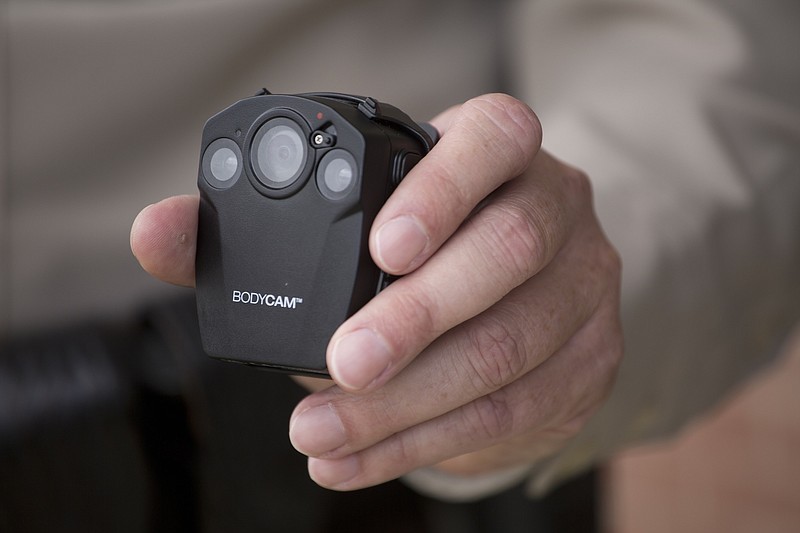For anyone who believes body cameras will be a panacea for the Chattanooga Police Department (CPD) or any other law enforcement agency, think again.
That's not to say they might not be helpful. The 250 collar-worn devices that were recently approved for purchase by the City Council for patrol officers and investigators can and should be a useful tool.
But technology can malfunction, people are fallible and critical things can happen outside camera range. Chattanooga Police Chief Fred Fletcher, for instance, told the City Council a body camera might not remain attached during "a lively physical encounter."
"That's not misconduct or malfeasance," he said. "That's just the nature of physics and the reality of the struggle. That doesn't mean the officer did anything deliberate."
The unpredictability is what is troubling about a recent poll by icitizen, a Nashville polling agency, and the Tennessee Coalition for Open Government that found nine of 10 Volunteer State respondents support the release of body camera footage. Clearly, the nine don't have any idea what they're asking.
Undoubtedly, many of the nine imagine an unending episode of "Cops," one of the longest-running television programs in the United States. They dream of hours of footage - perhaps uploaded to YouTube - of searches by K-9 officers armed with snarling German shepherds, Tasers deployed on antsy suspects, prostitute stings and scores of the innocent-until-proven-guilty-in-a-court-of-law stoppees mouthing the phrases "I swear to God," "That's not mine" and "Please, Officer."
They can't quite picture boring stretches of police personnel sitting in patrol cars working on reports of fender-benders, of issuing routine speeding citations or of waiting in court for a case to be called.
Some of the nine also may believe the cameras finally will expose the officers and departments they are sure are completely racist, hate all minorities and are just waiting to plant evidence in the back seat of a 1995 Pontiac Grand Am.
If the cameras catch any officers displaying those feelings or doing those things, then good. They will have done their job.
But even those of the respondents who support the release of body camera footage for transparency reasons and with a judge's assent probably don't know what's involved. They are unable to wrap their minds around the cost to police departments, the downloading of daily footage of 250 officers and investigators, the cataloging of that footage, the storage of that footage, the need to edit footage to only what is needed in court and the need to blur images of certain persons on the footage if it is needed in court.
They also may be unaware that departments, as the CPD recently did, establish their own policies about the uses of the body cameras. In other words, Chattanooga's policy may be different from Knoxville's, which is different from Nashville's, and so on.
In testing 12 privately funded body-worn cameras over the past 10 months, the CPD used policies established by the International Association of Chiefs of Police. So the policies from city to city are likely to be similar, but even iotas of differences could become litigious.
Fletcher told the City Council in crafting its policy, the CPD benefited from "industry best practices [and] real guidelines that have been worked out across the nation and really represent an amalgamation of what most communities want, what most police departments want and what works best in the long run."
Unfortunately, the limit of the effectiveness of body cameras - their wider use began to called for after the shooting of black robbery suspect Michael Brown by a white officer two years ago this month in Ferguson, Mo. - is bound to not meet the high expectations: Perhaps the camera was accidentally turned off, came loose from a collar and pointed the wrong direction, or some (pick your race) officer somehow destroyed the footage.
And the ability of the public to see footage of an officer-involved shooting before an investigation is complete - as 57 percent of respondents to the icitizen-Tennessee Coalition for Open Government poll believe should happen - has the potential to color the outcome of a legal proceeding.
In the end, will body cameras help? Probably. Will police departments be sorry they have them (but not for the nefarious reasons you think)? Probably. Will state governments and federal courts have to become involved at some point? Without a doubt.
So, ready or not, body cameras are here and will become a reality for Chattanooga officers this fall. But uninformed proponents may be sorry they weren't careful what they wished for.
